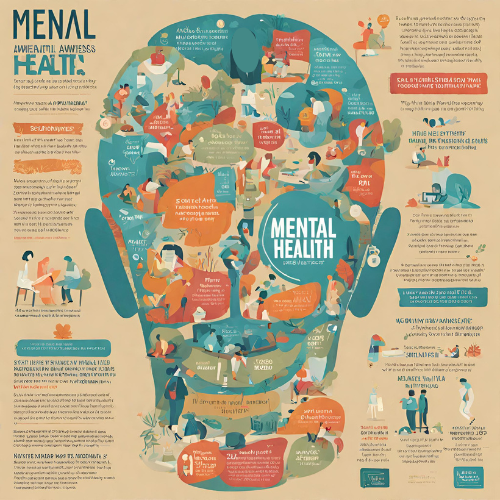Mental Health Awareness: Breaking The Stigma And Promoting Well-Being

Introduction
In the age of information, people across the globe are increasingly turning to the internet to seek knowledge and understanding on various topics. One of the most searched topics on Google, and rightly so, is mental health awareness. This article aims to delve deeply into the subject, shedding light on the importance of mental health, the challenges faced, and the ways society can collectively promote well-being while breaking the stigma associated with mental health issues.
I. Understanding Mental Health
Mental health is a state of well-being in which an individual can cope with the normal stresses of life, work productively, and contribute to their community. It encompasses emotional, psychological, and social well-being and affects how we think, feel, and act.
II. The Stigma Surrounding Mental Health
Despite the growing awareness of mental health issues, stigma and misconceptions persist. Stigma can lead to discrimination, making it difficult for individuals to seek help. Common myths include the idea that mental illnesses are rare, or that people can just "snap out of it." Addressing these misconceptions is crucial in promoting understanding and empathy.
III. Common Mental Health Disorders
-
Depression: A persistent feeling of sadness or loss of interest, affecting daily life and causing pain for both the individual and those who care about them.
-
Anxiety Disorders: Excessive worry or fear, often leading to avoidance behavior. Generalized Anxiety Disorder, Panic Disorder, and Social Anxiety Disorder are common types.
-
Post-Traumatic Stress Disorder (PTSD): This develops after a person has been exposed to a traumatic event, causing flashbacks, nightmares, and severe anxiety.
-
Bipolar Disorder: Characterized by alternating periods of depression and mania, affecting mood, energy, and activity levels.
IV. Strategies for Mental Health Promotion
-
Raising Awareness: Education and awareness campaigns can dispel myths and provide accurate information about mental health issues.
-
Accessible Mental Health Services: Governments and organizations should invest in mental health services, making them affordable and accessible to all.
-
Encouraging Open Conversations: Creating a safe environment where individuals can talk openly about their mental health struggles reduces stigma and encourages seeking help.
-
Promoting Self-Care: Teaching self-care practices such as mindfulness, exercise, and proper sleep can significantly impact mental well-being.
V. Conclusion
In the quest for a healthier society, understanding and promoting mental health awareness are paramount. By breaking the stigma, fostering open conversations, and providing accessible support, we can create a world where mental health is valued, understood, and prioritized. Together, we can build communities that offer compassion, support, and resources to those in need, ensuring that no one has to face mental health challenges alone.